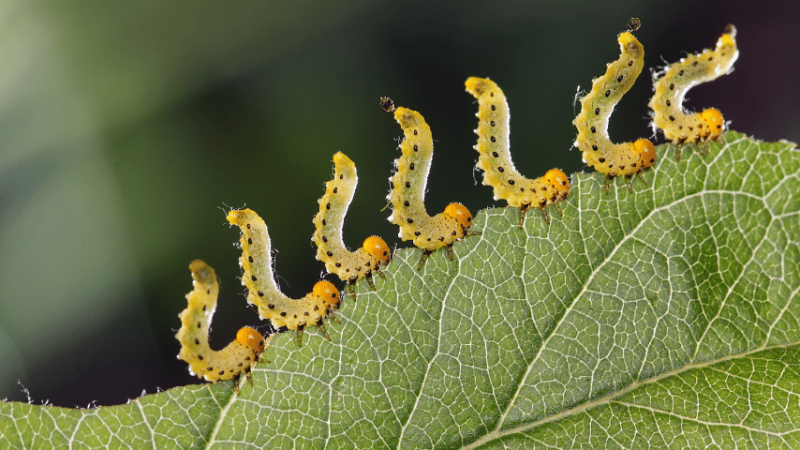While you might be able to see pests that attack your garden during the day,
it can be harder to spot animals that eat plants at night. Waking up to a damaged garden can be disheartening.
Thankfully, even if you’re not able to catch a garden pest red-handed, you can look for signs the animal has left behind.
With some research, you’ll be able to figure out what’s been munching on your plants.
When animals and insects eat plants, they’re usually conspicuous. Learn more about nocturnal garden pests and the indications they leave behind by reading on.
Table of Contents
Which Animal Is Eating My Plants At Night?
Many types of animals feed on plants at night, including deer, skunks, rabbits, and groundhogs. There are many insects that feed nocturnally as well, such as caterpillars, earwigs, slugs, and June bugs. If you inspect your plant, you may be able to identify the creature that’s causing damage.
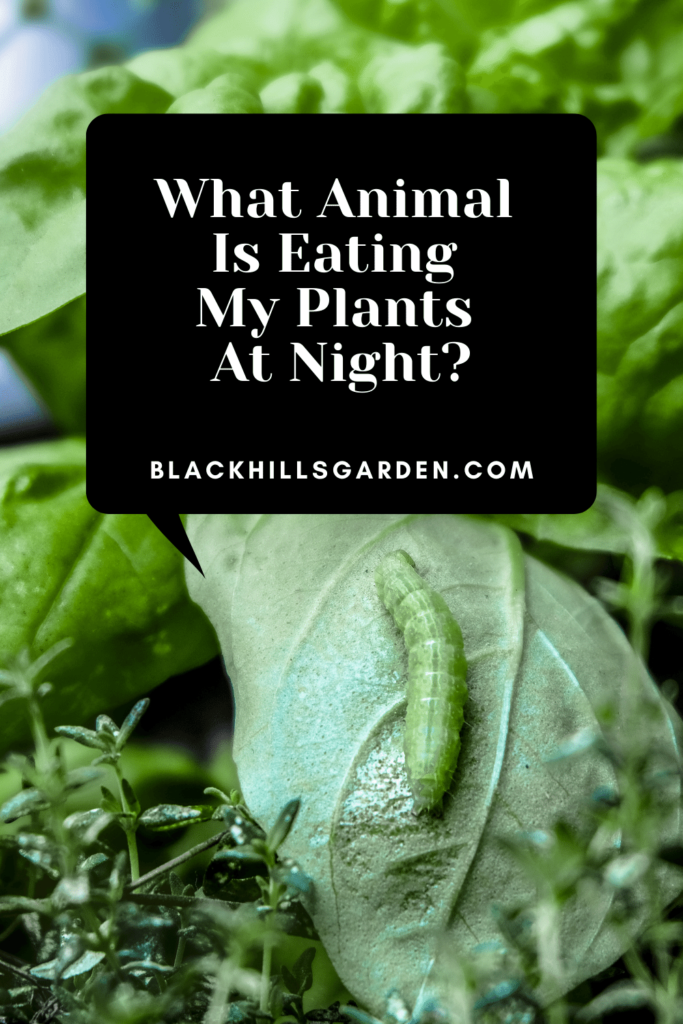
11 Animals That Are Eating Your Plants At Night
1. Deer
Deer are crepuscular, which means they’re primarily active at dusk and dawn. Even though deer aren’t nocturnal feeders, they may attack your plants while you’re still in bed.
If deer have visited your garden, you’ll notice deer tracks and droppings, which resemble small black pellets. Deer usually eat leaves and new plant growth.
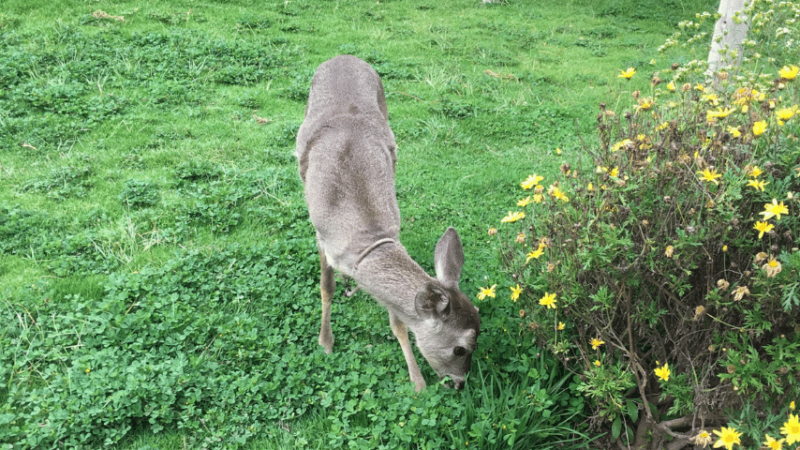
2. Rabbits
Like deer, rabbits are crepuscular animals that often eat right at the crack of dawn.
Rabbits will feed on leaves, stems, fruits, and vegetables, which means they can do quite a bit of damage to a garden.
While it’s easy to confuse deer and rabbit droppings, rabbit feces is smaller. Rabbits may also leave behind fur on or beneath bushes and branches.
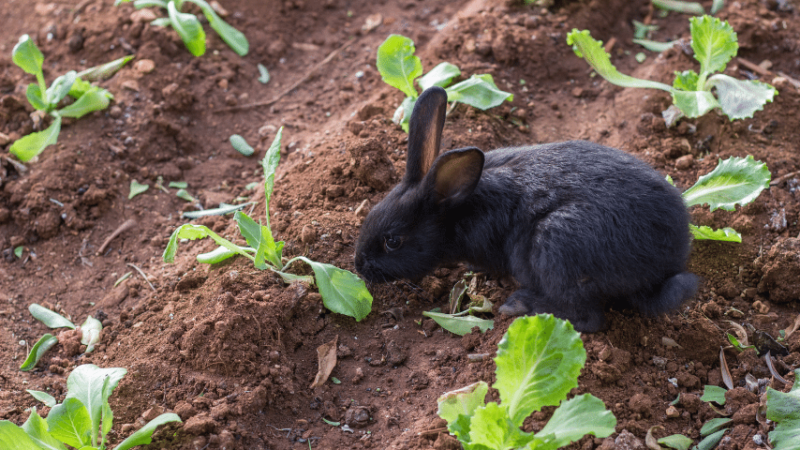
3. Groundhogs
Even though groundhogs are active during the day, they do most of their digging when it’s dark outside. When the sun is shining, these animals may find it difficult to dig a hole.
This means that groundhogs may damage your garden and eat plants between four and six in the morning.
If groundhogs have infested your garden, you may see teeth marks on plants and burrow holes throughout your lawn.
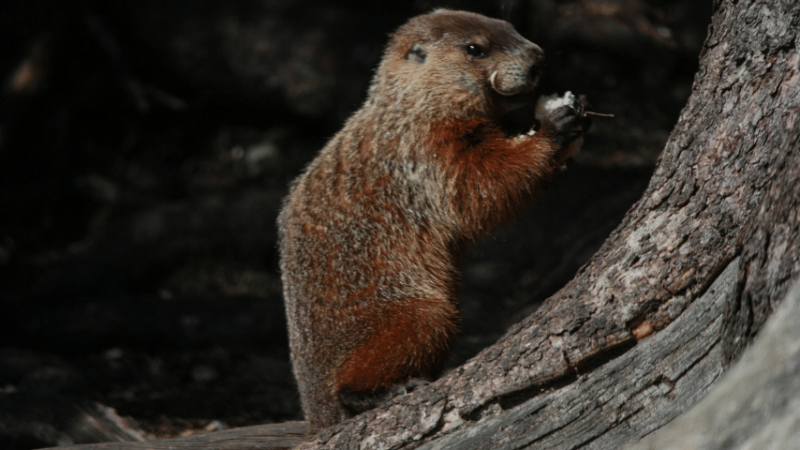
4. Skunks
While you can sometimes see skunks out during the day, they’re primarily active at night.
Even though skunks are known for their unpleasant smell, skunks usually won’t spray when they’re feeding in a garden.
Indicators of a skunk include tracks and ground depressions and skunk droppings, which contain undigested food. Skunks will eat plant leaves and any fruit that’s within reach.
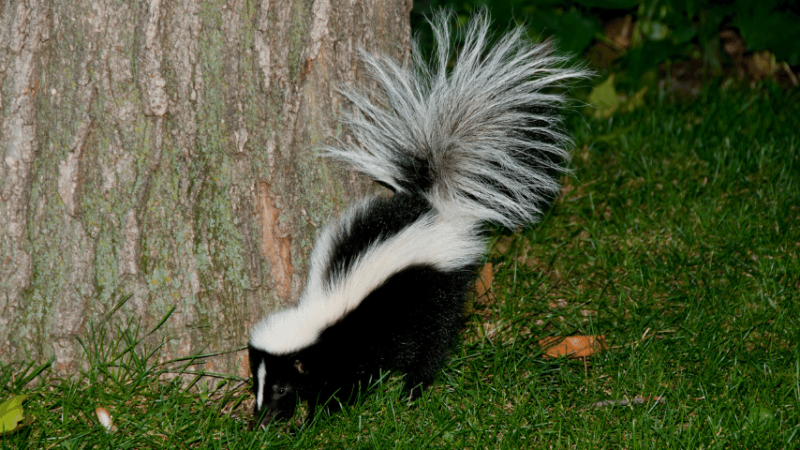
5. Slugs
Slugs prefer cool and dark environments, which is why they mostly feed at night.
They’ll eat the leaves of plants and will also feed on strawberries, cabbage, and some flowers, like violets and lilies.
The easiest way to check for slugs is to look for slime trails on your plant leaves. If a slug munches on a plant leaf, they’ll usually leave behind large, ragged holes.
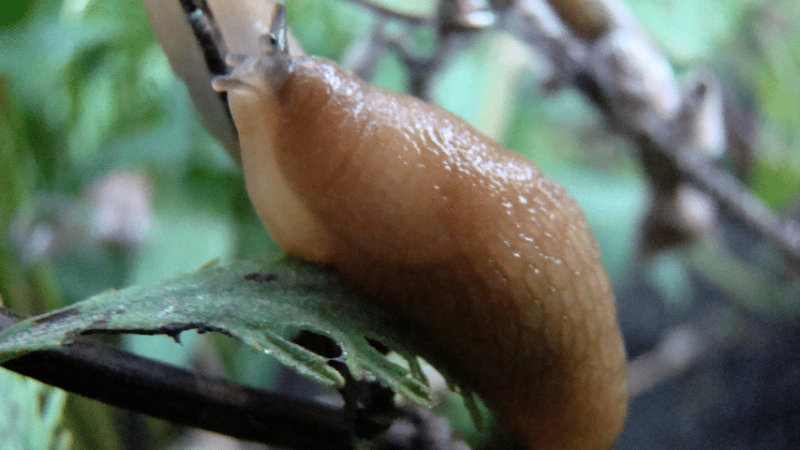
6. Caterpillars
While many caterpillars are active during the day, there are some types of Caterpillars, like cutworms, come out at night to eat.
Even though these caterpillars are inactive during the day, you can still spot them hiding on the leaves of plants.
If you see a caterpillar, it’s best to remove it by hand before it wakes up and starts feeding.
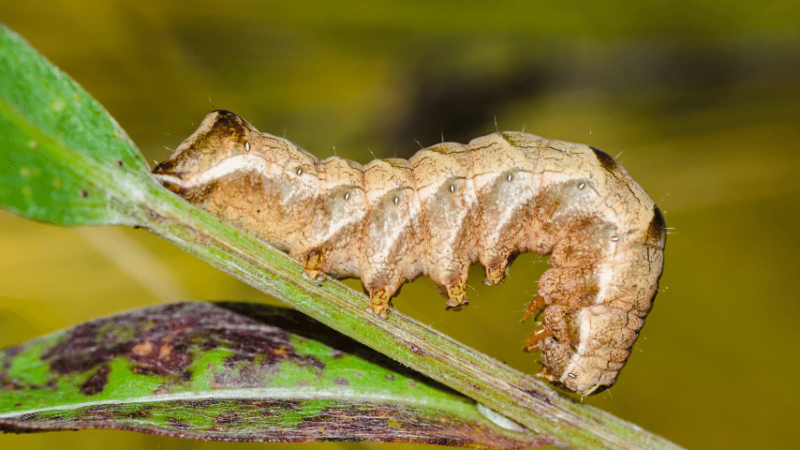
7. Tarnished Plant Bugs
Tarnished plant bugs start eating plants as soon as the weather warms. These insects can be active during the day or at night.
These bugs feed plant leaves and many types of plants, including strawberries, tomatoes, and flowering plants.
Tarnished plant bugs release toxins as they feed, causing brown spots to form on the plants they’ve been feeding on.
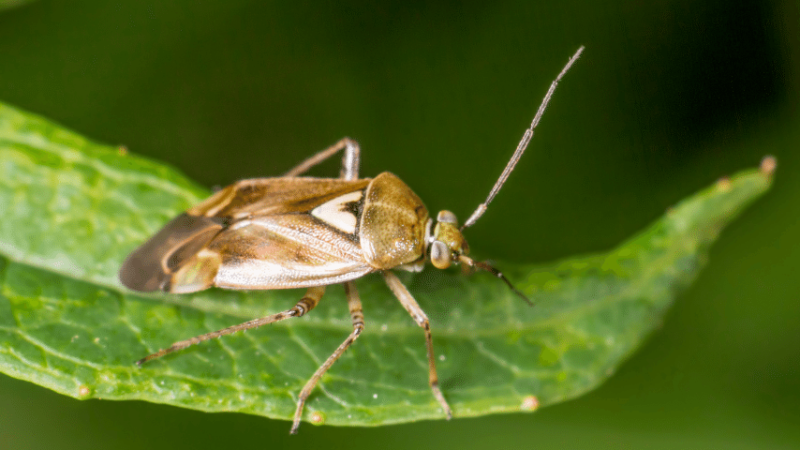
8. Black Vine Weevil
Adult black vine weevil feed at night. When they’re done feeding, they’ll leave eggs behind, which will hatch into larvae.
Both vine weevils and larvae can badly damage your garden. If weevils are feeding on your plant, you’ll typically see small notches around the edges of your plant’s leaves.
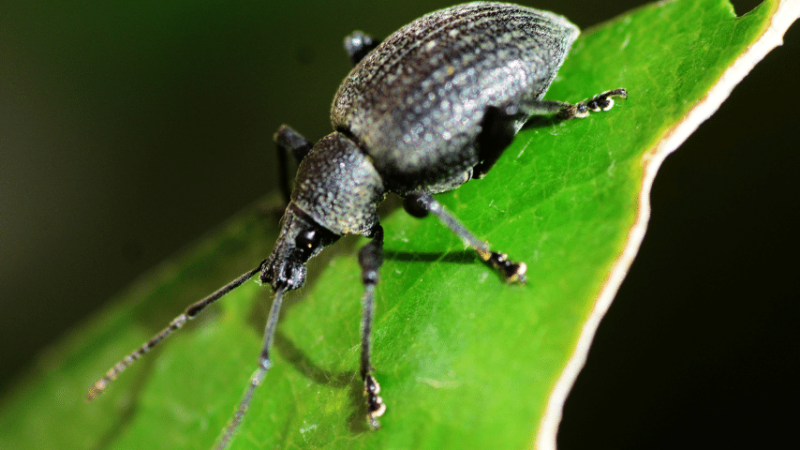
9. June Bugs
June bugs begin feasting around sunset and continue to feed all night. Adults feed on flowers, leafy plants, potatoes, and strawberries, while larvae feed on the roots of plants.
When June bugs eat leaves, they leave behind ragged holes. If you have June bug larvae in your garden, you may see brown spots forming on your lawn.
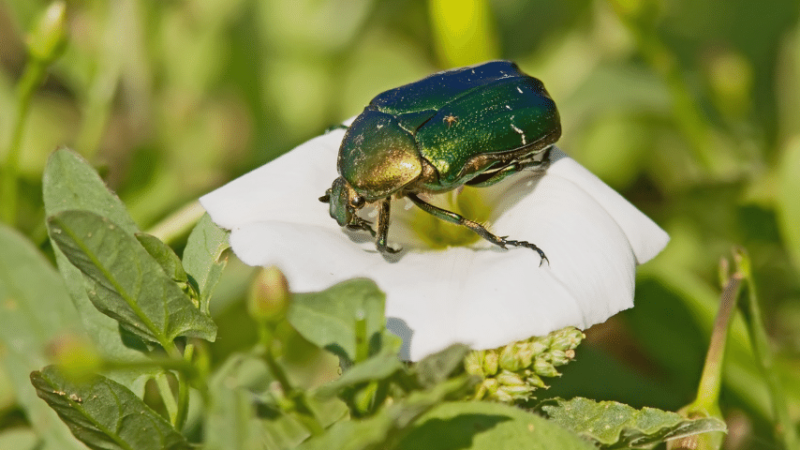
10. Earwigs
Earwigs thrive in dark, damp environments and do most of their feeding at night. They’re most likely to eat ornamental plants, including roses, dahlias, and zinnias.
If earwigs are attacking your garden, you’ll usually see damage after rainy weather. They leave behind jagged holes on petals and plant leaves.
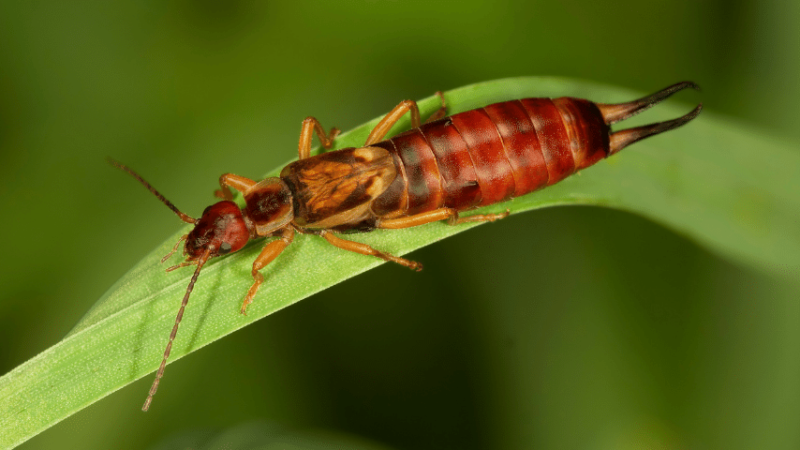
11. Beetles
Most harmful beetles feed during the day, but there are beetles that eat plants at night as well. Beetles typically eat the leaves of plants.
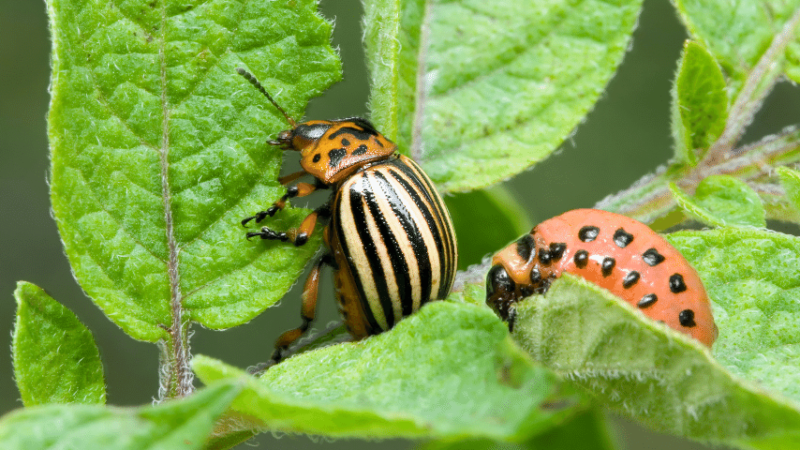
How Can I Prevent Animals from Consuming My Plants?
Harsh chemicals can keep pests away, but they can also damage your plants. Instead of using pesticides to get rid of pests, you may want to try natural pest control methods.
If you know what’s eating your plants at night, you can try introducing a predator that feeds on that pest to your garden.
Ladybugs, praying mantises, and lacewings can all keep your garden safe.
Alternatively, you can spray predator urine throughout your garden. As an example, the smell of fox urine will keep away rabbits and other small animals.
Other scents can scare off pests as well, including garlic, lavender, mint, and sage. Some flowers, like marigolds, have a smell that repels garden pests like deer.
You can also shield your plants with some sort of physical protection, such as a pest or netting. Garden rows help keep pests at bay and shield your plants from strong winds.
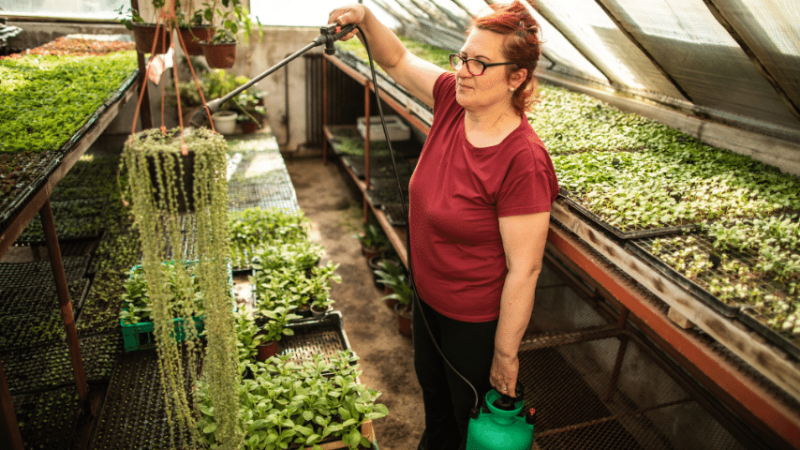
Frequently Asked Questions About What Animal Is Eating My Plants At Night
What Are the Worst Garden Pests?
There are many pests that can wreak havoc on gardens. Some of the most damaging pests include aphids, caterpillars, and vine weevils.
How Do You Fix Damaged Plants?
You can cut away damaged leaves and remove fruits and vegetables that are partially eaten. Plants can’t repair themselves, but they can grow new leaves.

